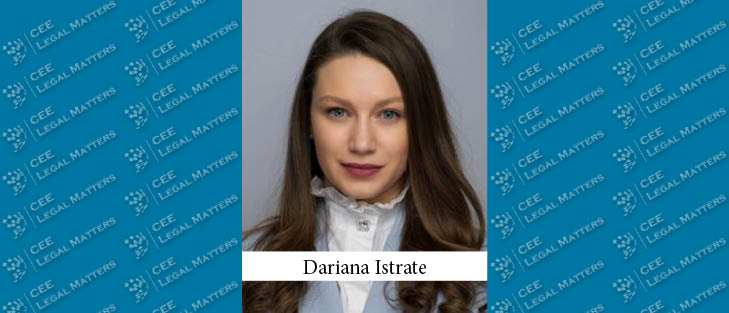As artificial intelligence (“AI”) technology develops, its capacity to create original works in a wide variety of fields such as literature, music, mass – media, complex art, and even software has become more apparent. This remarkable ability raises significant questions on whether these works may be protected by copyright, and the broader implications for both creators and consumers.
- Authorship and Ownership
One of the most debated issues in the realm of AI-generated content is the question of authorship. Traditional copyright law, built around the idea that a work must have a human author, faces challenges when applied to creations generated by machines. In many jurisdictions, copyright is granted only to works produced by human beings, raising the question: Who owns the rights to works created by AI?
Some argue that ownership is retained by the programmers or companies behind the AI since they invest substantial resources - time, money, and expertise, into developing these systems. Others believe that works generated entirely by an AI should belong to the public domain, since without human creativity, there should be no copyright protection.
This debate gets even more complex in cases where humans and AI collaborate to produce works. For example, if an artist uses AI to generate a base for a painting and then adds his/her own touch, who should hold the copyright—the artist, the AI, or both? Determining the balance of contributions between human and machine complicates the question of ownership further.
- Original creations
Under Romanian Law No. 8/1996 on copyright and related rights (“Copyright Law”), copyright protection is granted to works that are original intellectual creations. This requirement for originality remains the biggest challenge in the field of works created with AI and the core of the ongoing debate surrounding AI-generated content: can AI-generated works be deemed original?
AI systems typically learn from vast datasets composed of existing works, leading to the question of whether anything they produce can truly be considered original. Critics argue that AI merely remixes existing data and thus lacks the creative spark that defines human artistry. On the other hand, some argue that AI can generate new combinations and unique outputs that would have not arisen from human creativity alone, challenging traditional definitions of authorship and originality.
Further on, under the Copyright Law, the author must be the natural person/persons who created the work. When AI is used as a tool within the creative process—such as assisting a human artist in generating new content—the resulting work may still receive copyright protection, provided the human contribution meets the originality requirement.
Meanwhile, the recent DABUS case reinforced the principle that only natural persons can be named as inventors under patent law.
- Current legislative landscape[1]
The intersection of copyright and generative AI may give rise to the following issues:
- Potential copyright infringement by developers of generative AI tools, resulting from the use of copyrighted materials to train their algorithms through a process known as "data mining".
- Uncertainty regarding the copyright protection of works generated by, or in collaboration with, generative AI tools, as well as questions about ownership of such copyrights.
The European Union has addressed the first point. The Directive 2019/790/EU on copyright in the Digital Single Market (“DSM Directive”) introduced a legal definition of data mining and established certain exceptions or limitations that apply specifically to the training of AI systems.
Under EU law, data mining is deemed lawful in these circumstances:
- As an exception under Articles 5(a) and 7(1) of Directive 96/9/EC, Article 2 of Directive 2001/29/EC, and Article 15(1) of the DSM Directive, for reproductions and extractions conducted by research organizations and cultural heritage institutions for scientific research, provided they have lawful access to the works they intend to mine (stated in Article 3 of the DSM Directive).
- As another exception under the same articles, for reproductions and extractions of lawfully accessible works by any institution, as long as the mined text was accessed legally, and the copyright owner has not explicitly prohibited such use (Article 4 of the DSM Directive).
The above-mentioned exceptions must also adhere to Article 5(5) of Directive 2001/29/EC, which specifies that these limitations or exceptions are applicable only in "certain special cases that do not conflict with the normal exploitation of the work or other subject matter and do not unreasonably prejudice the legitimate interests of the rights holder."
The "Artificial Intelligence Regulation" adopted by the EU Parliament and set to be fully effective by 2026, provides a comprehensive framework for developing and using AI tools. While this legislation does not specifically address copyright issues, its recitals (105 to 109) highlight the significance of the data mining exceptions established by Directive 2019/790 and mention that providers of AI generative models must furnish detailed summaries of the content used for training.
It therefore results that the current EU legislative framework still does not resolve the question of ownership concerning works created using generative AI tools.
Conclusion
As technology advances, our legal frameworks must evolve to ensure that they adequately reflect the complexities of AI-generated works. Engaging in these discussions is essential for shaping a future in which both AI and human creativity can coexist, thrive, and contribute meaningfully.
[1] https://intellectual-property-helpdesk.ec.europa.eu/news-events/news/artificial-intelligence-and-copyright-use-generative-ai-tools-develop-new-content-2024-07-16-0_en
By Dariana Istrate, Senior Associate, NNDKP




